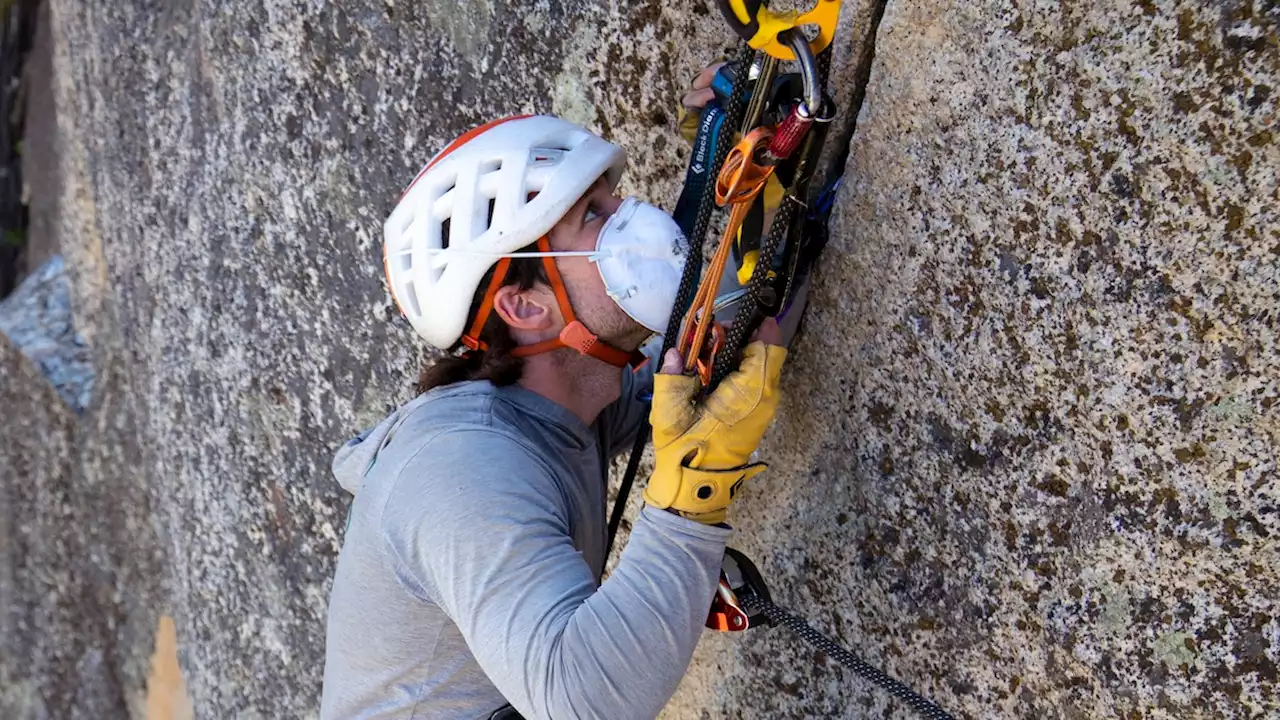Researchers are trying to learn where bats hibernate on Yosemite's massive towers before a deadly fungus—that has killed millions of bats in North America—reaches Yosemite
Shannon Joslin adjusts the beam of her headlamp and looks deep into one of the countless finger-size cracks that makea rock-climbing mecca. The granite seems to pour out of Yosemite Valley to the west on this crisp October morning, and beneath us is nothing but air and the gleaming ribbon of the Merced River a thousand feet below.
Their importance is why there’s a pressing need for biologists who love to climb. During the past decade, white-nose syndrome—caused by a fungus called—has killed more than five million bats in North America. Pd attacks bats’ skin while they hibernate, and the discomfort makes them more active, burning critical fat stores they need to survive the winter. Pd spread west from New York state and has been found on bats in four California counties since 2018.
Next year, the team will place tiny data monitors in the roosts to measure temperature and humidity, which will help determine whether the right conditions exist for Pd. And if white-nose syndrome does appear in Yosemite, they’ll climb to roosts to swab bats to test for the disease. She teamed up with Yosemite’s climbing rangers, who specialize in patrolling and surveying the vertical wilderness, and in 2018 created Big Wall Bats with the goal of understanding the potential for white-nose syndrome in the park. When funding dried up during the COVID-19 pandemic, Jackson left the National Park Service to direct the Yosemite and Sequoia Field Stations for the University of California, Merced.
From the start, Jackson knew it would be crucial to enlist the help of recreational climbers in reporting any bat or guano sightings. “It's a frontier that we're really only able to access in modern times because of climbing becoming so popular and people having the skills to safely access these ecosystems,” she says.
United States Latest News, United States Headlines
Similar News:You can also read news stories similar to this one that we have collected from other news sources.
 Photos: Yosemite Valley under a beautiful blanket of snowA strong storm blankets Yosemite Valley, creating beautiful winter scenery for visitors to Yosemite National Park.
Photos: Yosemite Valley under a beautiful blanket of snowA strong storm blankets Yosemite Valley, creating beautiful winter scenery for visitors to Yosemite National Park.
Read more »
![]() 'Avatar' sequel dominates North America with $134M debut“Avatar: The Way of Water ” didn’t make quite as big of a splash as many assumed it would, but James Cameron’s big budget spectacle still helped breathe life into the box office this weekend.
'Avatar' sequel dominates North America with $134M debut“Avatar: The Way of Water ” didn’t make quite as big of a splash as many assumed it would, but James Cameron’s big budget spectacle still helped breathe life into the box office this weekend.
Read more »
 Opinion: It’s time for a bigger, better North AmericaBecause our societies and economics are so interconnected, investments in expanded North American relationships can pay off in a huge way
Opinion: It’s time for a bigger, better North AmericaBecause our societies and economics are so interconnected, investments in expanded North American relationships can pay off in a huge way
Read more »
 With Qatar out the way, the next men's World Cup begins in North America in 2026DOHA, Qatar — A men's World Cup era ended Sunday with the greatest final ever played. It was a dichotomous era of rampant corruption, but also of GOATs and commercial growth. Even as the U.S. Department of Justice exposed FIFA, the global soccer governing body's business boomed. Revenue more than quadrupled from 1998, when the first 32-team World Cup was staged, to 2022. The tournament and its brand, despite relentless controversy surrounding Qatar, are as popular as ever.
With Qatar out the way, the next men's World Cup begins in North America in 2026DOHA, Qatar — A men's World Cup era ended Sunday with the greatest final ever played. It was a dichotomous era of rampant corruption, but also of GOATs and commercial growth. Even as the U.S. Department of Justice exposed FIFA, the global soccer governing body's business boomed. Revenue more than quadrupled from 1998, when the first 32-team World Cup was staged, to 2022. The tournament and its brand, despite relentless controversy surrounding Qatar, are as popular as ever.
Read more »
 Black bears in the West are more likely to be reddish, and scientists say they know whyThere is a low number of red American black bears in the east of North America.
Black bears in the West are more likely to be reddish, and scientists say they know whyThere is a low number of red American black bears in the east of North America.
Read more »
 America is not 'an extraordinarily racist country'“Obviously, America’s an extraordinarily racist country.” So says Gary Lineker, a successful soccer player in the 1980s who went on to become a $2 million-per-year BBC sports presenter. That’s not a bad wage when you consider that the BBC is taxpayer-funded. He made his remarks in the context of…
America is not 'an extraordinarily racist country'“Obviously, America’s an extraordinarily racist country.” So says Gary Lineker, a successful soccer player in the 1980s who went on to become a $2 million-per-year BBC sports presenter. That’s not a bad wage when you consider that the BBC is taxpayer-funded. He made his remarks in the context of…
Read more »
